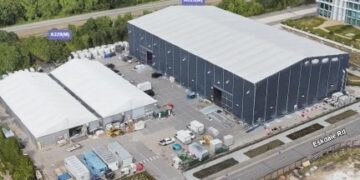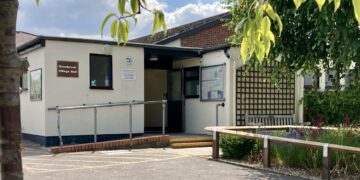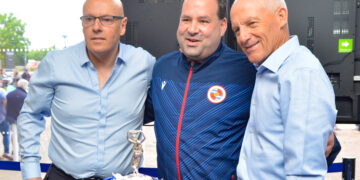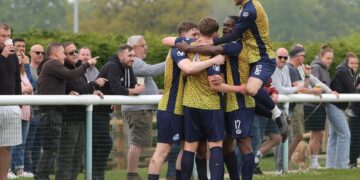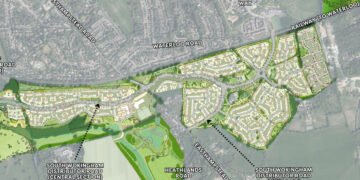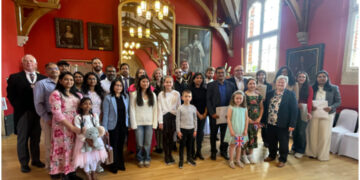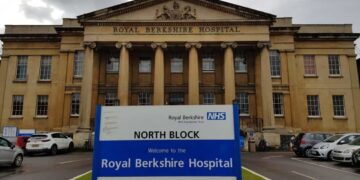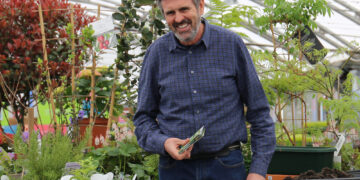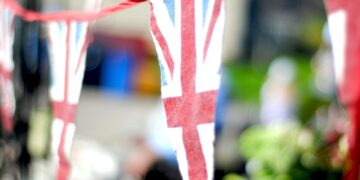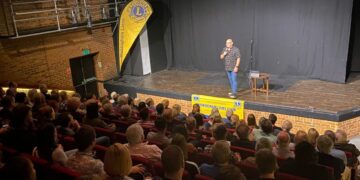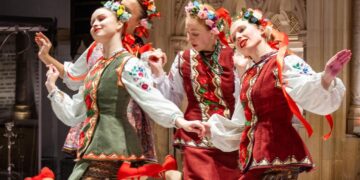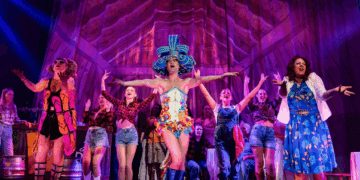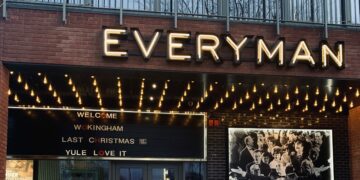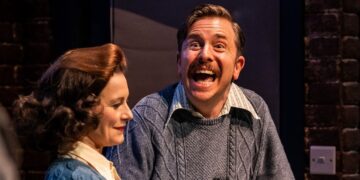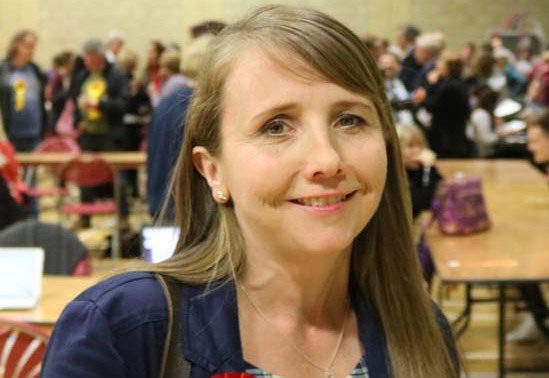LABOUR’S role in Wokingham Borough’s ruling partnership has been positive according to its leader, Rachel Burgess.
The councillor for Norreys ward said that residents are always the top priority for the party, and coming together with the independents and the Liberal Democrats following last May’s local elections was therefore the right thing to do.
“I know from talking to lots of residents on the doorstep that people want to see politicians working together,” she says. “We hear time and time again, ‘Why can’t you all just work together?’ I know it’s something residents value, and the Partnership has been the best way to ensure cross-party working.”
She said that key to going into the agreement was Labour councillors being able to keep their independence when it came to voting on council agendas.
“It allowed us to provide constructive scrutiny of the ruling Liberal Democrat group, which is vital for good local government.
“The Conservatives have, many times, called it a coalition and that’s not correct at all. There are no Labour members on the ruling group. There were disagreements (with the Lib Dems) in terms of some of the policies and we were able to handle those in a respectful way.”
She felt the partnership enabled the council to make “some really bold and difficult decisions”, including changes to waste collection.
“These are issues that, when the Conservatives were in power and had a majority, were never even presented to the rest of the council as decisions that might be made,” she says. “Instead, the Conservatives ran down the general reserves in order to balance the books because they weren’t prepared to make those difficult decisions.
“The votes of non-Conservative counsellors have enabled some of those really difficult decisions to be really tackled head-on.
“I think there has been a greater emphasis on supporting people with a cost-of-living crisis and, and people who are in poverty, which is something that the Labour group absolutely supports.”
That includes a full review of the local welfare provision scheme, aimed at helping people in a financial crisis.
“What I noticed is its budget was never spent, people didn’t know about it,” Rachel says. “Our contribution as part of that partnership has been to completely review it, and it’s going to be utilised much more effectively to make a real difference to, probably, a fairly small number of families, but a real difference to people who find themselves in difficulty.”
Labour’s representation on the council has been minimal with, at times, just a single councillor in the chamber. Its highest representation so far has been four councillors, but this doesn’t phase Rachel.
“We are a very small group and I hope we get more councillors in the upcoming elections, but we’re probably known for two things: we are very hard-working, and we punch above our weight. We’re not afraid to stand up and say if we think something is wrong. We’ve been very strong opposition over the years.
“Even though we’re a small group, we’ve definitely made our voice known. We’ve actually had an impact and people have listened to us, our views and our Labour values.”
And she expects any new Labour faces in the chamber to carry on with that ethos.
“Any councillor that gets elected for Labour you know they’re going to be really hard working – you can’t get selected as a Labour candidate unless you’ve got that hard-working ethic,” she says.
“It’s really important to have a greater diversity in the council. It’s still two-thirds men, for example. We need a greater diversity and that is something we’ve really tried to do in the candidates we’ve put up. Any councillor that does get elected for Labour, they’re going to work really hard in your community, and in your area.”
An example of this is the Rose Street crossing, which Rachel herself had been campaigning for over the past three years, just one of a number of road safety issues she has focused on.
“I’ve been able to show the strength of opinion on some of these issues,” she says, adding that this is part of a wider picture of the partnership working for the benefit of residents, including the cycling and walking infrastructure plan.
“What we’ve called for is for more transparency around how some of these projects are prioritised. What if, say, a petition goes in for a crossing, what happens after that? What do officers do? How do they prioritise that, does it go into a black hole? That was a motion from a Labour councillor and that was passed.
“It also shows the lack of funding for the council. It can’t fix every single pothole just like that because they don’t have the funds to do so. That’s due to years of cuts to local councils.”
These cuts, Rachel feels, meant the council tax rise of 4.99% was a necessary evil.
“I can’t really overstate how difficult though the financial situation is for our council and most councils around the country, that the financial pressures are absolutely immense,” she says. “The council officers worked tirelessly to find savings. It was extremely, extremely difficult.”
The reasons include 13 years of austerity, the war in Ukraine, and the pandemic.
“But we’ve also had a disastrous mini budget by the Conservatives, which crashed the economy and has contributed to the situation that we find ourselves in. The Conservative government haven’t got a grip on inflation. The mini-budget made everything so much worse.
“There was absolutely no choice: the Lib Dems had to put up council tax to that to the maximum … but council tax rises are not the long-term solution. Residents should not have to foot the bill for what is essentially Conservative incompetence.”
The price rises for the car parks is another issue the Lib Dems had no choice over, Rachel says. “The Conservatives dodged the issue for years. If they had increased it by a small amount every year over five years it wouldn’t be such a big hit to residents and businesses.”
The increase is in line with other local authorities: “Let’s be honest, none of us wants to see the car parking charges go up, we don’t want to have to pay more and we don’t think residents should. It was a difficult decision the ruling group had to make. There simply is no other choice.”
Waste collections switching to a fortnightly pattern is another difficult decision, but Rachel feels it is the right one: “It makes environmental sense, and an overwhelming financial sense. Our neighbouring authorities did it years ago and they increased recycling rates.
“By bringing in the changes, the council will end up making massive savings of around £1.5m.
“I’m sure the ruling group and the officers are very much bearing in mind any proposed changes the government is bringing in.”
When it comes to a vision for the borough’s future, Rachel says a change in government would bring significant change.
“I’d like people to be able to get a doctor’s appointment, I’ve lost count of the number of residents that have contacted me, just distraught, because they can’t get a GP appointment, and there’s very little that the council can do about that,” she says. “I’d like to see people not have to wait in A&E for hours and hours.
“If we had a Labour government, they would use funds generated from changes in tax to radically expand NHS workforce.
“Labour has said we would, if we were in government, we would freeze council tax, funded by the windfall tax on oil and gas.
“It’s an easy thing to say, isn’t it? We need a change in government, but it’s absolutely true. That’s the only way we’re going to see real change in Wokingham.”
Would Labour go into a partnership again after the local elections? Rachel says it’s too early to say. “We don’t know what the make-up of the council will be until after the elections, but we will always look to find agreement with other parties, not just the Lib Dems, because that’s what residents want to see.
“We will look to find agreement rather than disagreement.”
“Residents can use these elections to send a message. Every vote for the Conservatives would be a message to the Conservatives in Westminster that people don’t care about the way they trashed the economy, there’s a massive tax break for the top 1% on their pensions, that the government has no grip on inflation and our economy is lagging behind our peers.
“I know that people do care, and if they want change I urge them to send that message by voting Labour.
“If you vote for a Labour councillor, you are voted for a councillor who will always put residents first and not just tow the party line. They will be really hard working.
“It’s tough to get elected as a Labour councillor in Wokingham, we have to always keep working all year round. We will never be the kind of councillor that just pops up when elections come around, they will always put residents first.”

